|
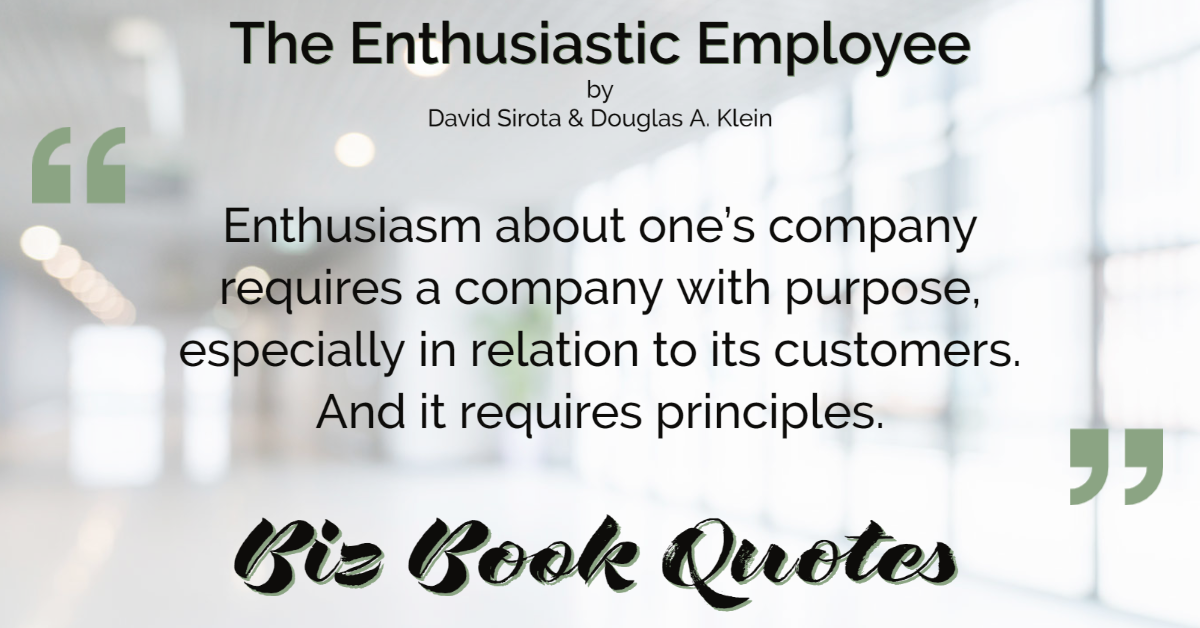
|
The Enthusiastic Employee:
Enthusiasm about one’s company requires a company with purpose, especially in relation to its customers. And it requires principles.
|
219 |
|
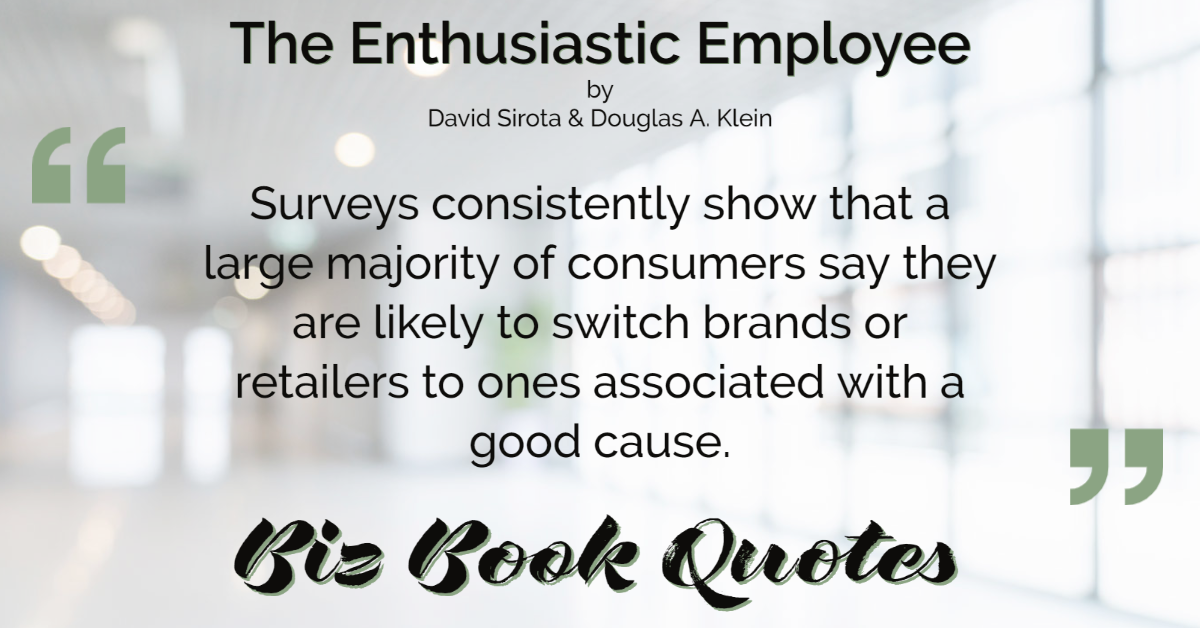
|
The Enthusiastic Employee:
Surveys consistently show that a large majority of consumers say they are likely to switch brands or retailers to ones associated with a good cause.
|
223 |
|
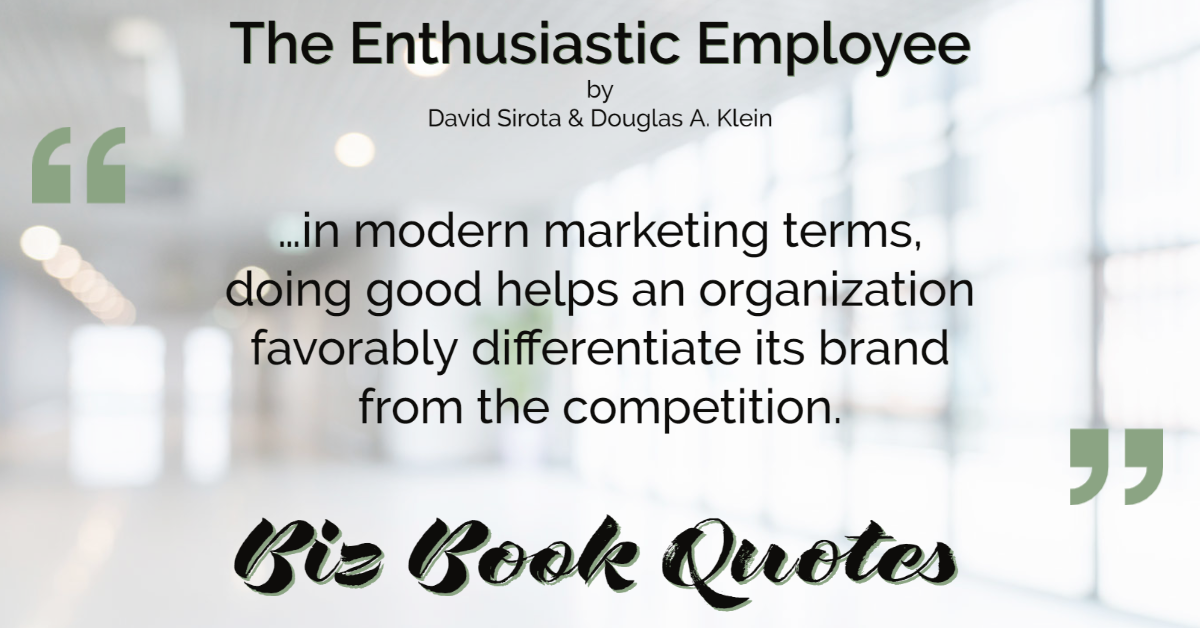
|
The Enthusiastic Employee:
…in modern marketing terms, doing good helps an organization favorably differentiate its brand from the competition.
|
223 |
|
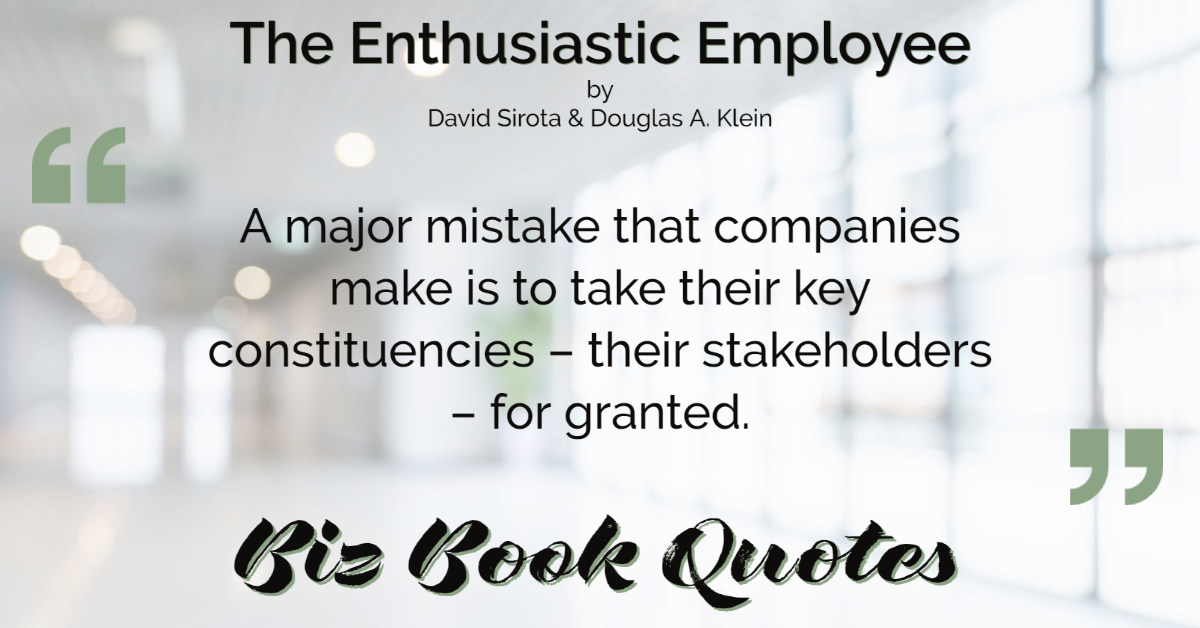
|
The Enthusiastic Employee:
A major mistake that companies make is to take their key constituencies – their stakeholders – for granted.
|
225 |
|
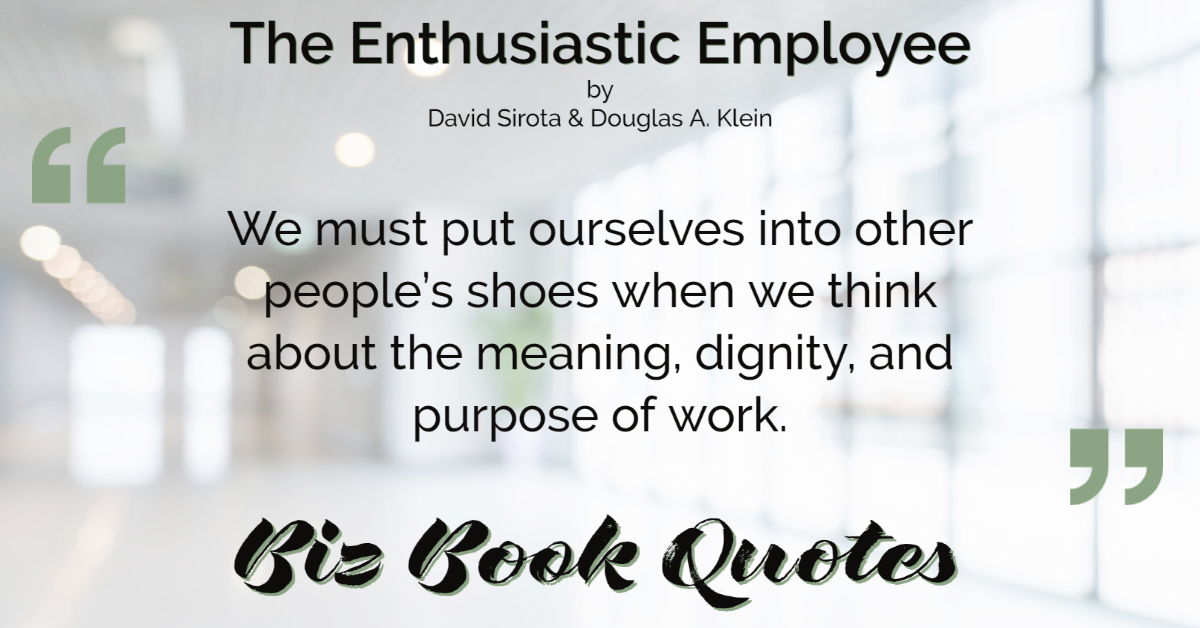
|
The Enthusiastic Employee:
We must put ourselves into other people’s shoes when we think about the meaning, dignity, and purpose of work.
|
231 |
|
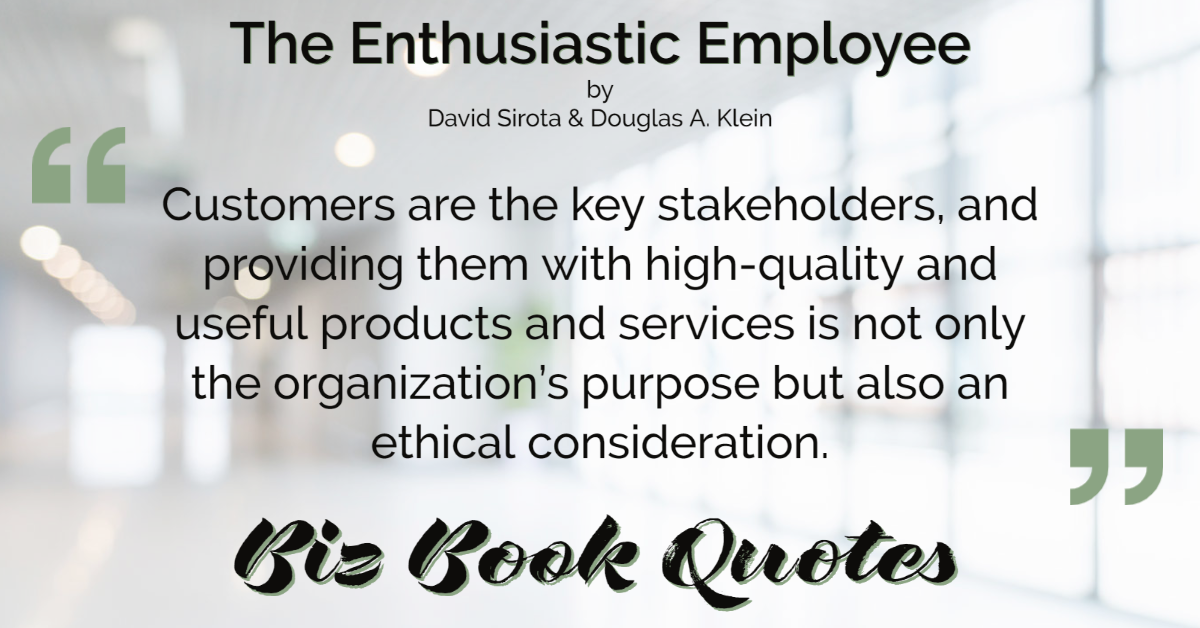
|
The Enthusiastic Employee:
Customers are the key stakeholders, and providing them with high-quality and useful products and services is not only the organization’s purpose but also an ethical consideration.
|
232 |
|

|
The Enthusiastic Employee:
The companies that generate employee enthusiasm are those that go beyond… and, in effect, act as true advocates for their stakeholders’ interests.
|
235 |
|
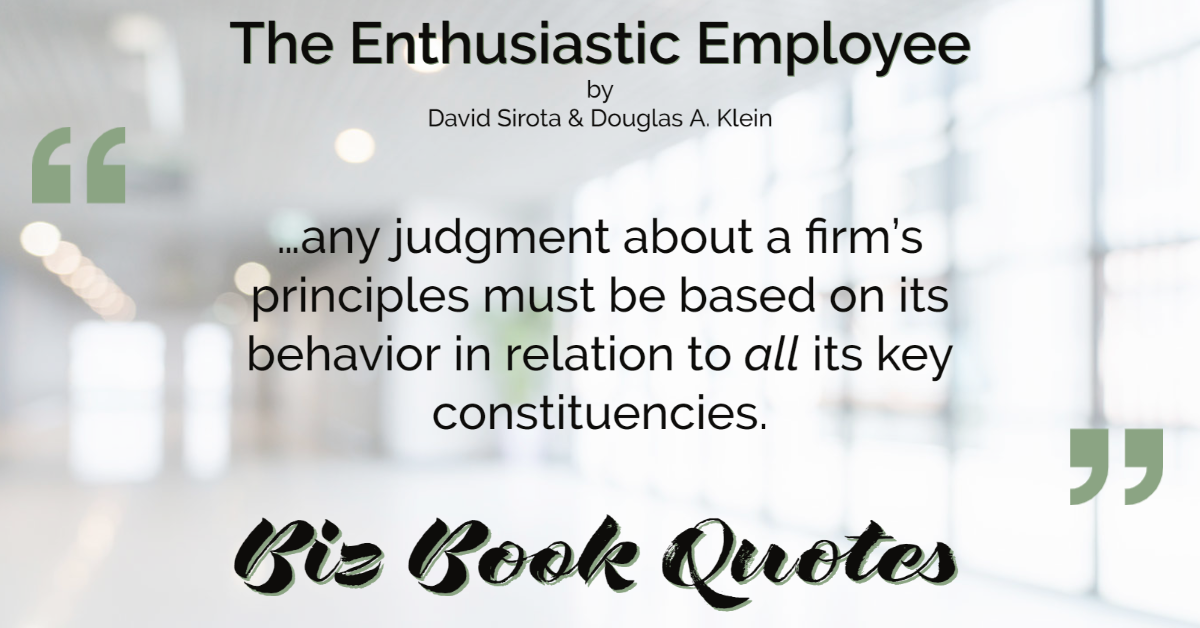
|
The Enthusiastic Employee:
…any judgment about a firm’s principles must be based on its behavior in relation to all its key constituencies.
|
236 |
|
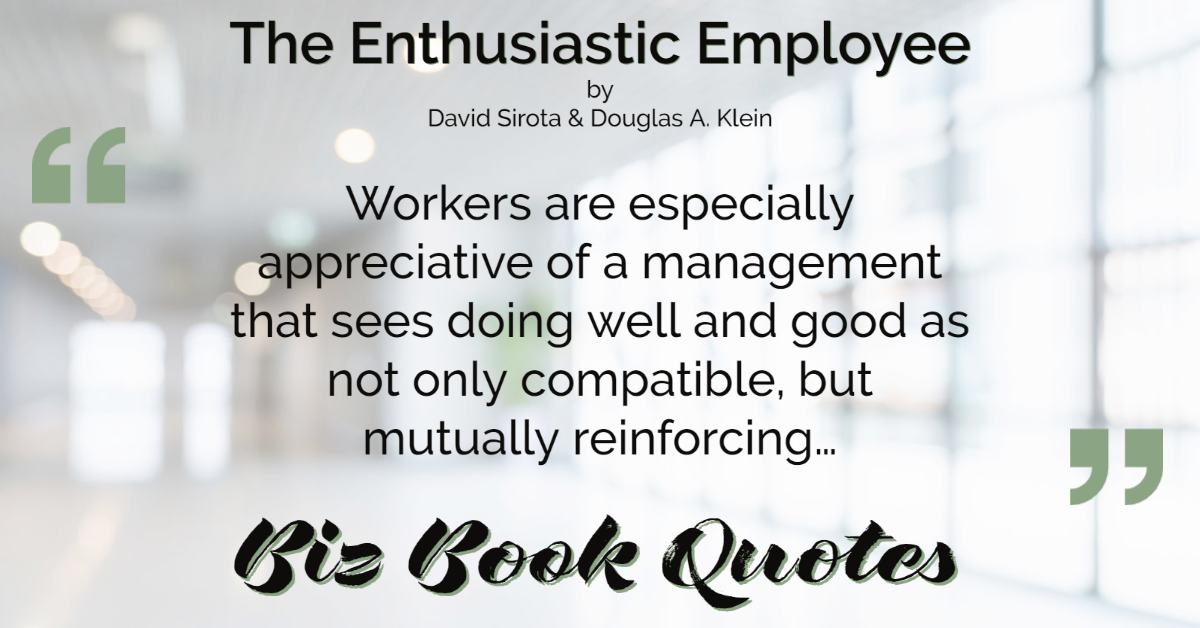
|
The Enthusiastic Employee:
Workers are especially appreciative of a management that sees doing well and good as not only compatible, but mutually reinforcing…
|
238 |
|
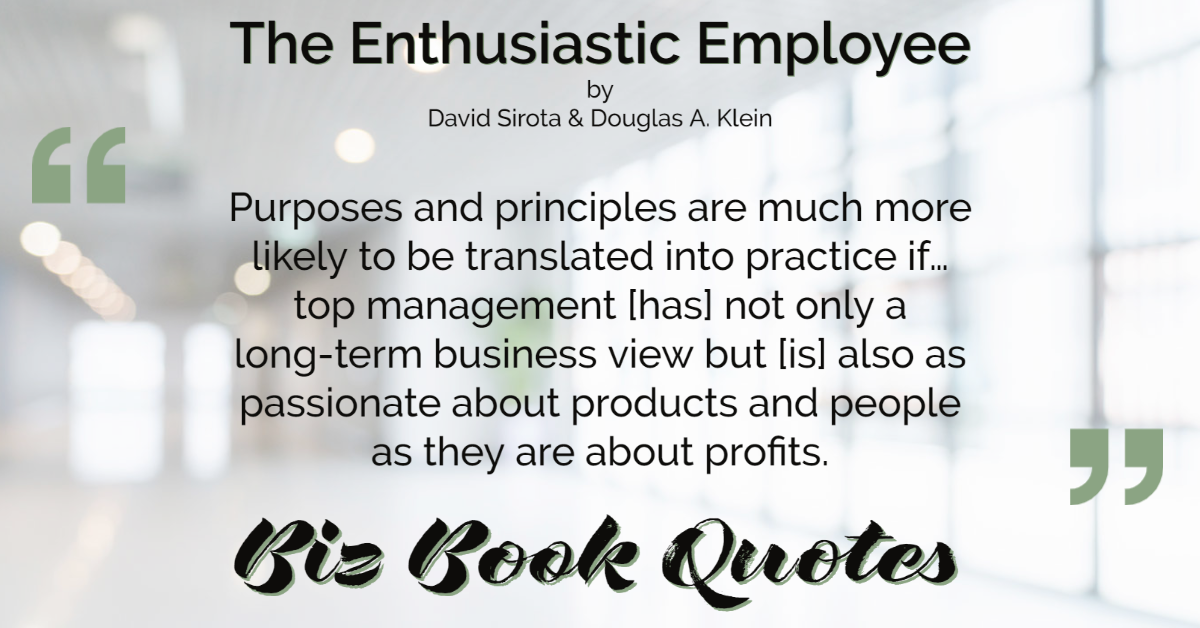
|
The Enthusiastic Employee:
Purposes and principles are much more likely to be translated into practice if… top management [has] not only a long-term business view but [is] also as passionate about products and people as they are about profits.
|
241 |











